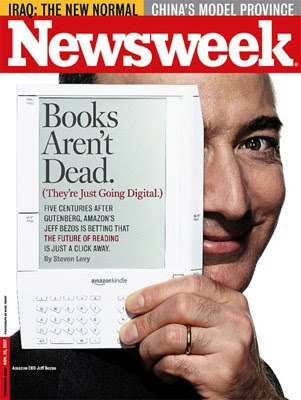
so watching my shows around my schedule is amazing.
APPARENTLY IM NOT THE ONLY ONE WHO PICKED UP ON HOW RIDICULOUS THE SHOW IS....GOSSIP GIRL SPOOF- WATCH THE FIRST MINUTE
The entire idea behind the whole series plays on a very interesting aspect of media in our society. The name gossip girl comes from a unknown character that sends anonymous text messages to each of the characters when some juicy gossip is revealed. This plays on the personal to participatory aspect of technology. None of these characters lives are personal because of gossip girl and her ability to spread information about the characters so rapidly. Shows the scary downside of how new media platforms are making it easier than ever before to share information so quickly. ( Not to mention no single character seems creeped out by the fact that some unknown person watches everything they do??) This just adds to the ridiculousness that is "GOSSIP GIRL." Exploiting the materialistic side of our society in a VERY scary and depressing way. Gossip Girl needs to step up their act if they want people to keep watching!
After watching the first three episodes of Gossip Girl season four, I began to wonder how I ever even watched for the first three seasons. This season began with the two main characters Blaire and Serena during the end of their summer vacation in Paris- where Blaire falls in "love" with a Prince, but then her ex-boyfriend suddenly appears on the same street at the same time in Paris ( WHAT ARE THE ODDS?) with a new girlfriend on his arm, and all hell breaks lose- setting the stage for the drama filled episodes that follow. This is just a small example of the ridiculous plot line that the Gossip Girl producers have set up because they're running out of ideas for the characters. Basically every character has slept together, feuded, or gotten married at some point throughout the series. The entire show is literally based around the beautiful people persuasive technique.
During the show, the characters never go through any type of personal growth or deal with any real life issues. The entire show is about rich kids who live in New York City, blow all their parents money on clothes and parties, and look really good all the time. The entire show is based around making the viewer intrigued about the fabulous life of manhattans elite- but there's so much focus on doing that throughout the show that there is in fact no actual plot or real story line as the driving force behind the show. If you take away all the fancy materialistic items, the show is just a bunch of college kids who complain a lot about their "tough lives."
APPARENTLY IM NOT THE ONLY ONE WHO PICKED UP ON HOW RIDICULOUS THE SHOW IS....GOSSIP GIRL SPOOF- WATCH THE FIRST MINUTE
The entire idea behind the whole series plays on a very interesting aspect of media in our society. The name gossip girl comes from a unknown character that sends anonymous text messages to each of the characters when some juicy gossip is revealed. This plays on the personal to participatory aspect of technology. None of these characters lives are personal because of gossip girl and her ability to spread information about the characters so rapidly. Shows the scary downside of how new media platforms are making it easier than ever before to share information so quickly. ( Not to mention no single character seems creeped out by the fact that some unknown person watches everything they do??) This just adds to the ridiculousness that is "GOSSIP GIRL." Exploiting the materialistic side of our society in a VERY scary and depressing way. Gossip Girl needs to step up their act if they want people to keep watching!


